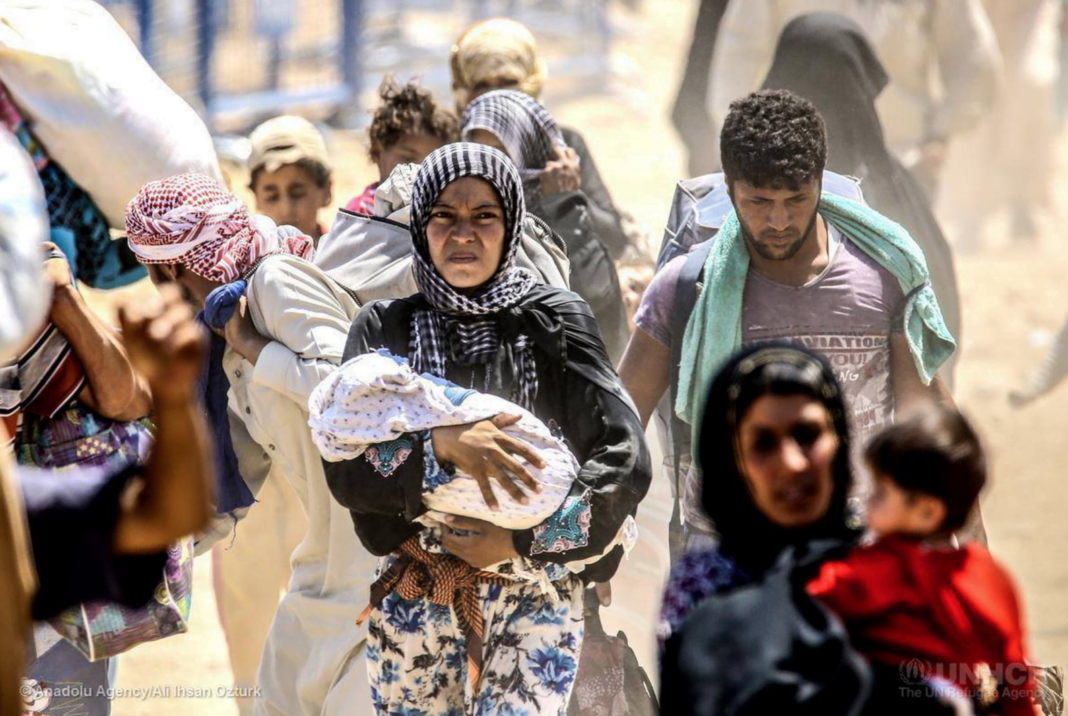The United Nations Security Council recently witnessed a heated exchange as tensions flared over the growing violence in Syria. The meeting was convened in response to an alarming escalation of hostilities, triggered by the capture of Aleppo by rebel forces. This sudden development has further complicated Syria’s already fragile situation, drawing global attention and raising questions about the roles of various groups and international actors involved.
Escalation of Fighting and Humanitarian Crisis in Syria
The rebel offensive, led by Hayat Tahrir al-Sham (HTS), marked a significant shift in the Syrian conflict. HTS, previously known as the Nusra Front, was once affiliated with al-Qaeda before severing ties in 2016. Despite this, the group remains listed as a terrorist organization by both the United Nations and the United States. Their involvement in capturing Aleppo has heightened concerns about the nature of their operations and their impact on civilians.
The fighting has left a trail of destruction, with widespread reports of bombings and airstrikes targeting urban areas. Civilians have borne the brunt of this violence, with schools, hospitals, and residential neighborhoods suffering extensive damage. These attacks have deepened the humanitarian crisis in Syria, where millions of people have already been displaced by years of civil war.
Accusations at the United Nations
The Security Council meeting turned into a platform for sharp verbal confrontations between global powers, each accusing the other of contributing to the violence and worsening the humanitarian situation. Both sides presented contrasting narratives, focusing on different aspects of the conflict while trading serious allegations.
One side emphasized the troubling role of Hayat Tahrir al-Sham in the conflict, highlighting its designation as a terrorist organization and the dangers it poses to regional stability. They expressed concerns about the group’s leadership of the Aleppo offensive, arguing that its actions endanger innocent civilians and escalate the war. Despite these concerns, they pointed fingers at other parties, accusing them of indiscriminate attacks on civilian infrastructure, including schools and hospitals. Such attacks, they argued, exacerbate the suffering of ordinary Syrians and demand accountability.
On the other hand, opposing voices accused international actors of hypocrisy and selective condemnation. They argued that some global powers, while condemning terrorism, simultaneously support groups that destabilize the region. These accusations included claims that certain countries ignored attacks on peaceful Syrian cities, where civilians have been the primary victims. This stance led to strong criticism of perceived double standards in the global fight against terrorism, with one representative declaring that there were no illusions about the sincerity of certain nations in combating international terrorism.
The accusations reached a boiling point when some representatives accused their opponents of propping up regimes accused of supporting terrorism. This sparked fierce rebuttals, with each side defending their track record on fighting terrorism while accusing the other of fueling instability.
Worsening Humanitarian Crisis
Amid this diplomatic clash, the situation for civilians in Syria continues to deteriorate. The recent fighting has caused significant casualties, displacement, and destruction of essential infrastructure. Families in conflict zones are grappling with severe challenges, including a lack of access to food, water, and medical care.
The offensive on Aleppo and subsequent airstrikes have left schools and hospitals in ruins. Many children and their families have been forced to flee, joining the millions already displaced by the long-running war. For those who remain, life has become a daily struggle for survival in a war-torn landscape where safety is a distant memory.
Humanitarian organizations working in the region have called for an immediate ceasefire and increased support to address the needs of affected populations. They report that access to conflict zones remains limited due to ongoing violence, making it difficult to deliver aid to those who need it most. The targeting of civilian infrastructure, including medical facilities, has further compounded the challenges faced by relief workers.
The situation in Syria highlights the devastating impact of prolonged conflict and the complexities of international diplomacy in addressing it. While global powers exchange accusations at the United Nations, millions of civilians continue to suffer. The humanitarian crisis grows more severe with each passing day, underscoring the urgent need for meaningful action to protect those caught in the crossfire.
As the conflict intensifies, the exchange of accusations and counter-accusations at the United Nations reflects the broader difficulties in addressing terrorism and ensuring accountability in regions engulfed by war. The ongoing struggle to balance international security concerns with the protection of human lives remains one of the greatest challenges in modern global politics.

